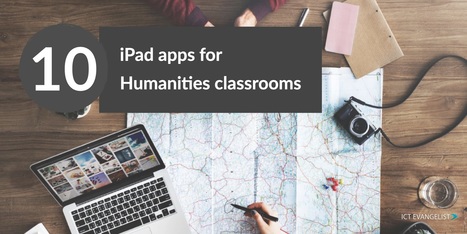Encouraging an innovative mindset in students is important because the jobs they will have in the future may not yet exist today. Therefore, schools are increasingly asking for funds for 3D printers, robotics arenas, and makerspaces. While these shiny new tools are typically reserved for the STEM fields, English and humanities teachers can use a school’s makerspace to build on content.
Research and publish the best content.
Get Started for FREE
Sign up with Facebook Sign up with X
I don't have a Facebook or a X account
Already have an account: Login
News, reviews, resources for AI, iTech, MakerEd, Coding and more ....
Curated by
John Evans
 Your new post is loading... Your new post is loading...
 Your new post is loading... Your new post is loading...
|
|












